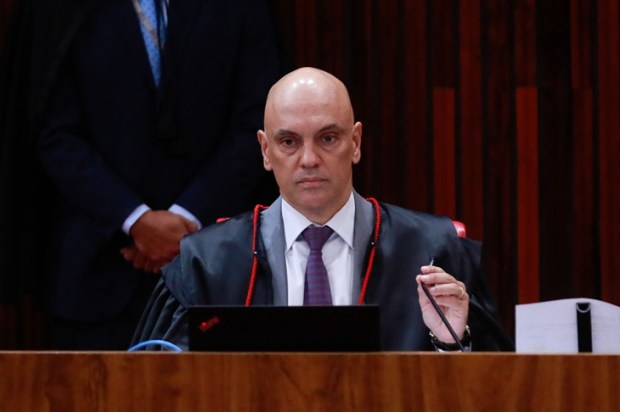Over the last four years, the Australian ruling classes have demonstrated an insatiable appetite for power and control over our supposedly free and democratic society. As further evidence of this, the Labor government, with the support of the Coalition Opposition, is now planning to forge ahead with ‘misinformation’ legislation to empower the Australian Communications and Media Authority to force the social media platforms to tackle any alleged ‘misinformation’.
The Australian Minister for Communications, Michelle Rowlands, believes that ‘holding social media companies accountable for seriously harmful misinformation and disinformation on their platforms has never been more important’. She says ‘the Albanese government has been steadfast in resolve to combat the scourge of mis- and disinformation online’. Her department has recently issued a document proposing amendments to the ‘Basic Online Safety Expectations’ Determination (BOSE Determination) that would deprive Australians of free speech and the implied freedom of political communication guaranteed by the Australia Constitution.
The Online Safety Act 2021 already allows the Communications Minister to determine ‘basic online safety expectations for social media services’. It also grants the e-Safety Commissioner power to enforce compliance with the Minister’s directives. The e-Safety Commissioner, Julie Inman Grant, has told at the World Economic Forum in 2023 about the need of Australian authorities to ‘think about a recalibration of a whole range of human rights that are playing out online, from freedom of speech to freedom to be free from online violence’.
The e-Safety Commissioner’s ‘Online Hate Speech’ report at least recognises that ‘when asked to define hate speech most respondents see in its the broadest terms – anything negative which is directed at someone’. We are told by such a report that ‘harmful content that increase the likelihood of discrimination’. Neither ‘hate speech’ nor ‘harmful’ are clearly defined. ‘Harmful content’, it turns out, could include ‘hate speech and other online harms’. Of course, reasonable people may have very different views about what constitutes harm. For example, most reasonable people would think that the government’s recent ‘information’ about mRNA vaccines as being ‘safe and effective’ constitute harm and misinformation. However, government content can never be deemed misinformation but content critical of government policies might be!
The e-Safety Commissioner has recently ordered X (Twitter), along with Meta, to remove material claimed to depict ‘gratuitous or offensive violence with a higher degree of impact or details’, within 24 hours or face fines. X has rejected these demands to take down content and has accused the online watchdog of censorship. ‘We will robustly challenge this unlawful and dangerous approach in court’, X said. Fortunately, the CEO of X, Elon Musk, is not willing to give away the constitutional rights of Australians. He has Tweeted that the ‘Australian censorship commissar is demanding global content bans!’
The Opposition Leader, however, is not so concerned about protecting free speech. On the contrary, Peter Dutton says the Coalition is willing to work with the government to strengthen e-Safety laws and to introduce the new misinformation laws, thus renewing focus on the government’s misinformation legislation which was shelved last year. The deputy opposition leader, Susan Ley, also informs us that the Opposition would support Labor ‘in cracking down’ on social media platforms.
We should not be so surprised. The former Coalition government, under domestic terrorism response protocols, sought out cyber censorship of Covid-related content that, in practice, amounted to the silencing of voices daring to question vaccines, lockdowns, and mandatory vaccination. As reported by Chris Kenny, such a government treated concerns about the safety of Covid vaccines as domestic terrorism.
The official government (mis)information about the safety of vaccines was based on research conducted by pharmaceutical companies selling these experimental vaccines. At the beginning of the vaccination rollout on February 21, 2021, the Australian government instructed social media companies to censor anyone who dared to question the safety of such vaccines, including experienced medical doctors who dared to disagree with official health information. Deregistering doctors who provided vaccine exemptions or prescribed alternative treatment was especially egregious.
These oligarchs in Australia treat people very much like disposable slaves. The Greek word for free speech is parrhesia, which implies one’s ability to express their views without the fear of reprisal. In classical times, parrhesia was deemed essential to the preservation of Greek democracy. Those ancient Greeks believed that only slaves could not speak freely, although all free citizens could. What made the trial of Socrates so extraordinary is that this was ‘the only case in which we can be certain that an Athenian was legally prosecuted not for an overt act that directly harmed the public or some individual — such as treason, corruption or slander — but for alleged harm indirectly caused by the expression and teaching of ideas’.
Of course, the ruling classes always had a vested interest in preserving the status quo by suppressing any speech that might threaten their prevailing orthodoxy. For example, in 1621, when the House of Commons in England announced their right to freely speak, King James I tore out the page of the journal which contained such statement and arbitrarily dissolved the Parliament. The king also imprisoned several MPs who were deemed ‘disloyal’ to him for simply daring to proclaim such a right to free speech, including Sir Edward Coke.
History repeats itself and, from 2017 to 2022, the Australian Department of Home Affairs petitioned social media sites to censor alternative information 13,646 times. This included suppressed Covid posts from doctors who disagreed with official public health and vaccine information. The information reveals ‘an Australian Government department as a key player in the Covid censorship industrial complex’. Those who are responsible for this deadly cover up should be held accountable for the loss of so many lives and livelihoods.
Under our Constitution, the courts at least recognise an implied freedom of political communication as a means of invalidating legislation. This freedom operates as an immunity of the citizen from powers that are not reasonably appropriate and adapted to some other legitimate end. The existence of this freedom is derived from the text and structure of the Constitution, and particularly its system of representative government, which gives rise to an implication that there must be a freedom to discuss any political matter. In Attorney-General (SA) v Corporation of the City of Adelaide (2013) Chief Justice Robert French stated:
Freedom of speech is a long-established common law freedom … linked to the proper functioning of representative democracies and on that basis has informed the application of public interest considerations to claimed restraints upon publication of information.
If anything, participation in the democratic process implies a freedom to speak even the most unspeakable things. The extent to which political communication can be offensive was considered by the Australian High Court in Roberts v Bass (2002). This case dealt with some defamatory allegations made against a member of the South Australian Parliament. There Justice Michael Kirby argued for the majority of the Court that ‘political communication in Australia is often robust, exaggerated, angry, mixing fact and comment and commonly appealing to prejudice, fear and self-interest’. This argument was further expanded by him in Coleman v Power (2004). There, Justice Kirby argued that Australia’s politics often involves ‘insult and emotion, calumny and invective’, and that this implied freedom of political communication must allow for all this.
This goes without saying that free speech does not disadvantage minority groups, nor does it favour those with more power. On the contrary, freedom of speech is a core principle of every democratic society. It is important to remember that all totalitarian governments restrict speech as a matter of course. Democracy naturally implies that both good and bad ideas ought to be allowed and encouraged in the marketplace of ideas. Thus, under this democratic principle, debate ought to be encouraged and free speech ensures that everyone has the capacity to voice their opinions freely.
In contrast, the ruling classes may feel quite tempted to limit free speech when such a restriction serves their own self-serving interests. Those interests would include the retention and accumulation of power and the financial advantage it brings. It is therefore a foolish assumption to think that free speech favours those with power. Anyone who know anything about history will able to testify that protecting free speech is actually about giving voice to the powerless against the established interests.
Unfortunately, however, the horrendous violations of people’s fundamental rights over the last years have revealed the existence in Australia of an invidious trend to authoritarianism. A perfect example of this trend to authoritarianism, of course, is the ongoing discussion by the ruling classes about the supposed need of ‘misinformation/disinformation’ legislation.
Augusto Zimmermann is Professor and Head of Law at Sheridan Institute of Higher Education. He is a former Associate Dean, Research, at Murdoch Law School and also a former Commissioner with the Law Reform Commission of Western Australia (2012-2017). Dr Zimmermann is the co-author, together with Professor Gabriël Moens AM, of ‘The Unlucky Country’ (Locke Press, 2024).

























